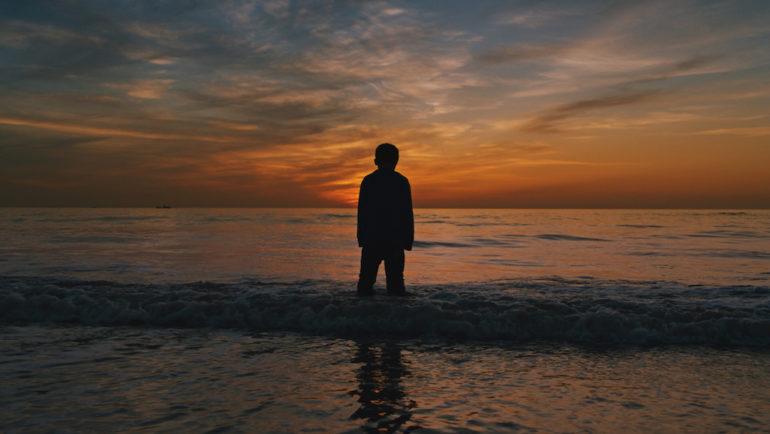Macao Film Review: ‘Over the Sea’
By Jessica Kiang
LOS ANGELES (Variety.com) – The beginning is a fairy tale, or a nursery rhyme. A woman nurses her squalling baby in a house by an orchard near the sea. Sunlight slants in through the open windows, the mother hums a lullaby, and then brings her son outside and places him in a cot suspended from the apple-laden branches of a tree. But through the course of Sun Aoqian’s uneven but finally deeply affecting and strange coming-of-age tale “Over the Sea,” the bough will break, the cradle will fall, and down will come baby, cradle and all.
The child is Xiaojie (live-wire first-timer Yu Kunjie), a heartbreaking, wisecracking, street-smart representative of China’s “left-behind children” — the kids left to grow wild as weeds with relatives or family friends while their parents pursue elusive economic advancement elsewhere. He lives with his irascible uncle Sun (Sun Xinfu) in the shabby truckers’ motel Uncle Sun runs alongside his pretty daughter Bird (Rebecca Li), who is adored by Xiaojie and serially pawed at by the motel’s grubby clientele.
After one such incident, Sun comes to his daughter’s defense, but is chased into the street where he is hit by a truck. That accident, the frequent radio reports about sea monsters being washed inland on abnormal tides, and Xiaojie’s obsession with a book about the ocean he cannot afford all feed into his hyperactive kid’s imagination where fantasy and reality blur into one another, often in the same sweeping, unbroken shot.
It is this flirtation with the surreal and the mythical that sets Sun’s ambitious debut apart from ostensibly similar social-realist growing-pains dramas. Sometimes a small band — accordion, violin, and clarinet — wanders into frame, led by a blind man, playing jaunty folk tunes, for all the world as though they’d just stumbled off an Emir Kusturica set. Objects and color-coded images recur: round ripened apples (a slightly overused motif, perhaps), wisps of red thread wrapped around tree trunks or railings, wriggling shrimp turning pink in the pot, white sheets flapping in the wind, black hair straggling damply over Bird’s face.
In the most overtly nightmarish sequence, Xiaojie’s childish game of make-believe aboard a grounded old rust bucket of a ship — a monument to tetanus — takes a dark turn. As Zhou Cong’s sinuous camera follows the little boy down into the bowels of the dead boat, where characters from his past and present loom up out of the gloom, all Xiaojie has for protection is an imaginary sword clasped in one shaky hand. The unreal sequences work so well because they flow seamlessly on from the real, and the reality of Xiaojie’s paltry life is so lived-in.
Director Sun chose locations from his own childhood: the motel, with odd internal windows good for scrambling through, and a kitchen wall spattered with grease is really his uncle’s motel. Uncle Sun is played by, well, his actual Uncle Sun. And Xiaojie’s mannerisms, his angular, jerky physicality and his pugnacious, truculent expressions feel so much part of the role because Sun wrote the part after knowing his young actor for a full year already.
Though Yu Kunjie is wonderfully un-cute (more than one customer calls him ugly and his uncle’s favored term of endearment is “you little shit”), there is something extraordinarily sweet about his rambunctious, carefree exuberance for life, despite its hardships. Xiaojie is naughty — a loudmouth, a congenital liar, and a petty thief who curses like the sailor he dreams of being. But he is also innocent and lacking in self-pity, as though he hasn’t yet understood all the ways the world has done him wrong.
It is a lesson life will soon teach him. After all the childish theatrics and performativity, Xiaojie is finally shown in a moment of stillness and introspection, and it is unexpectedly devastating, like a light has gone out that will never flare again. The proof of a coming of age story is in such moments, where despite the familiarity of the beats, you feel a fresh pang of real loss, as though this were the first kid ever forced to put away childish things and escape into an imaginary world. And in the eccentric, expressive “Over The Sea,” that ache feels all the more acute because this little boy, and the many thousands like him stranded like flotsam by the receding high tide of China’s economic miracle, had so little of anything else to lose.

